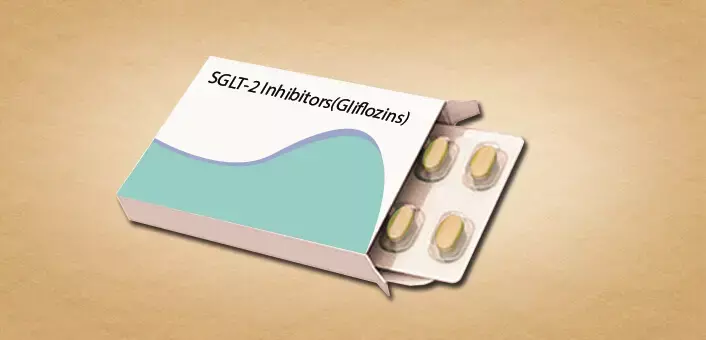- Home
- Medical news & Guidelines
- Anesthesiology
- Cardiology and CTVS
- Critical Care
- Dentistry
- Dermatology
- Diabetes and Endocrinology
- ENT
- Gastroenterology
- Medicine
- Nephrology
- Neurology
- Obstretics-Gynaecology
- Oncology
- Ophthalmology
- Orthopaedics
- Pediatrics-Neonatology
- Psychiatry
- Pulmonology
- Radiology
- Surgery
- Urology
- Laboratory Medicine
- Diet
- Nursing
- Paramedical
- Physiotherapy
- Health news
- Fact Check
- Bone Health Fact Check
- Brain Health Fact Check
- Cancer Related Fact Check
- Child Care Fact Check
- Dental and oral health fact check
- Diabetes and metabolic health fact check
- Diet and Nutrition Fact Check
- Eye and ENT Care Fact Check
- Fitness fact check
- Gut health fact check
- Heart health fact check
- Kidney health fact check
- Medical education fact check
- Men's health fact check
- Respiratory fact check
- Skin and hair care fact check
- Vaccine and Immunization fact check
- Women's health fact check
- AYUSH
- State News
- Andaman and Nicobar Islands
- Andhra Pradesh
- Arunachal Pradesh
- Assam
- Bihar
- Chandigarh
- Chattisgarh
- Dadra and Nagar Haveli
- Daman and Diu
- Delhi
- Goa
- Gujarat
- Haryana
- Himachal Pradesh
- Jammu & Kashmir
- Jharkhand
- Karnataka
- Kerala
- Ladakh
- Lakshadweep
- Madhya Pradesh
- Maharashtra
- Manipur
- Meghalaya
- Mizoram
- Nagaland
- Odisha
- Puducherry
- Punjab
- Rajasthan
- Sikkim
- Tamil Nadu
- Telangana
- Tripura
- Uttar Pradesh
- Uttrakhand
- West Bengal
- Medical Education
- Industry
SGLT2 inhibitors may reduce resting BP and skeletal muscle reflexes independent of glycemic control

Dallas, TX: Recent data have shown a novel role for SGLT2 inhibitors independent of glycemic control, in reducing resting blood pressure (BP) and activity of skeletal muscle reflexes. The findings of the study, published in the journal Hypertension, may be important for the prevention of hypertension and hypertensive heart disease in young prehypertensive patients.
Sodium-glucose cotransporter 2 inhibitors (SGLT2i) are a class of anti-diabetic medications that have been shown to reduce BP in hypertensive type 2 diabetes patients. There is no clarity on the mechanism of action underlying this but SGLT2i-induced sympathoinhibition is suggested to play a role. Wanpen Vongpatanasin, University of Texas Southwestern Medical Center, Dallas, TX, and colleagues aimed to determine whether SGLT2i reduces BP and sympathetic nerve activity (SNA) in a nondiabetic prehypertension model.
For this purpose, the researchers assessed changes in conscious BP using radiotelemetry and alterations in mean arterial pressure and renal SNA. This was done during simulated exercise in nondiabetic spontaneously hypertensive rats during chronic administration of a diet containing dapagliflozin (0.5 mg/kg per day) versus a control diet.
Key findings of the study include:
· Dapagliflozin was found to have no effect on fasting blood glucose, insulin, or hemoglobin A1C levels.
· Dapagliflozin reduced BP in young (8-week old) spontaneously hypertensive rats as well as attenuated the age-related rise in BP in adult spontaneously hypertensive rats up to 17 weeks of age.
· The rises in mean arterial pressure and renal SNA during simulated exercise (exercise pressor reflex activation by hindlimb muscle contraction) were significantly reduced after 4 weeks of dapagliflozin (Δmean arterial pressure: 10±7 versus 25±14 mm Hg, Δrenal SNA: 31±17% versus 68±39%).
· Increase in mean arterial pressure and renal SNA during mechanoreflex stimulation by passive hindlimb stretching was also attenuated by dapagliflozin.
· Heart weight was significantly decreased in dapagliflozin compared with the control group.
"Our findings demonstrate a novel role for SGLT2i in decreasing resting BP as well as the activity of skeletal muscle reflexes, independent of blood sugar control," Dr. Vongpatanasin and colleagues wrote in their study. "Our study may have important clinical implications for hypertension and hypertensive heart disease prevention in young prehypertensive individuals.
Reference:
Kim HK, Ishizawa R, Fukazawa A, Wang Z, Bezan Petric U, Hu MC, Smith SA, Mizuno M, Vongpatanasin W. Dapagliflozin Attenuates Sympathetic and Pressor Responses to Stress in Young Prehypertensive Spontaneously Hypertensive Rats. Hypertension. 2022 Aug;79(8):1824-1834. doi: 10.1161/HYPERTENSIONAHA.122.19177. Epub 2022 Jun 2. PMID: 35652337; PMCID: PMC9308730.
Dr Kamal Kant Kohli-MBBS, DTCD- a chest specialist with more than 30 years of practice and a flair for writing clinical articles, Dr Kamal Kant Kohli joined Medical Dialogues as a Chief Editor of Medical News. Besides writing articles, as an editor, he proofreads and verifies all the medical content published on Medical Dialogues including those coming from journals, studies,medical conferences,guidelines etc. Email: drkohli@medicaldialogues.in. Contact no. 011-43720751


